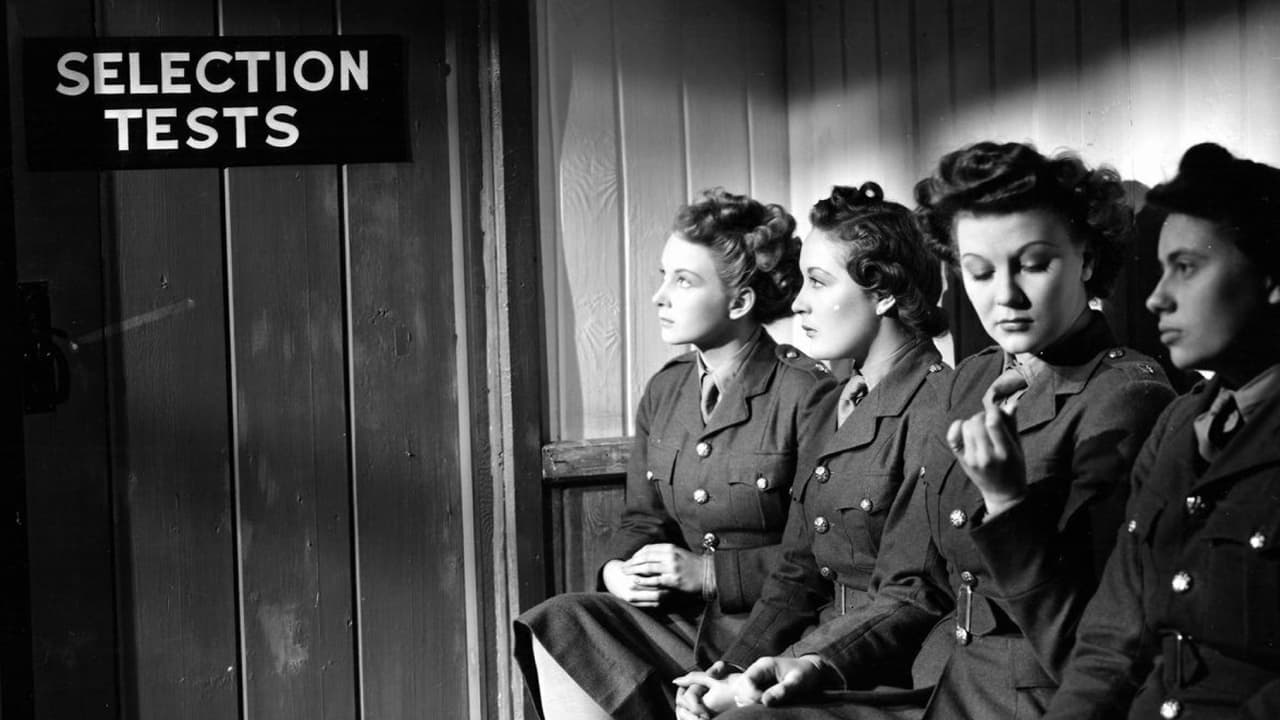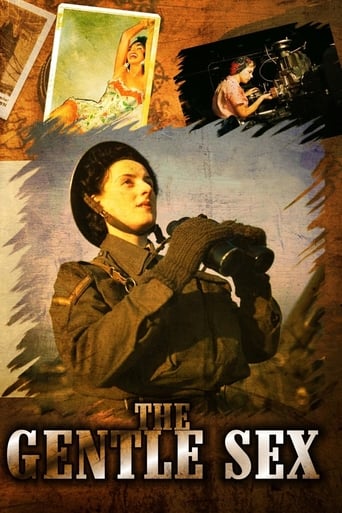Salubfoto
It's an amazing and heartbreaking story.
Humbersi
The first must-see film of the year.
Bergorks
If you like to be scared, if you like to laugh, and if you like to learn a thing or two at the movies, this absolutely cannot be missed.
Roy Hart
If you're interested in the topic at hand, you should just watch it and judge yourself because the reviews have gone very biased by people that didn't even watch it and just hate (or love) the creator. I liked it, it was well written, narrated, and directed and it was about a topic that interests me.
MartinHafer
The most interesting thing about this film is that it was Leslie Howard's last film before he was killed--shot down by German planes en route to Lisbon during the war. He both directed and narrates this story which was meant both to celebrate the work of women in the army as well as bolster the spirits of the folks at home. In many ways, the film seems pretty dull...or at least kind of petty through much of the picture. After all, the women's boot camp seemed pretty easy and their work not especially hazardous. Fortunately, by the end of the picture you see real sacrifices and difficulties--something you find yourself longing for because through so much of the film the ladies don't seem exposed to many hardships. Because of this, if you see the movie, stick with it...it's worth it. For a similar sort of film, though a bit better, try "So Proudly We Hail"--the story of a group of nurses and the serious hardships they endure in the early days in the Pacific War.
wes-connors
Seven attractive women join the ATS (Auxiliary Territorial Service) in Great Britain during World War II. This was a volunteer branch of the British Army, for female participants, like the United States Women's Army Corps (WACs). The "lead" is (arguably) platinum blonde Joyce Howard (as Anne Lawrence), but they are all essentially supporting roles. The women come from different locations and classes. They get to know each other during training (better than we get to know them). All have moments and/or potential, but it's all for naught...You're likely to recognize the director in the opening sequence is actor Leslie Howard. He keeps his back to the camera while narrating, but still shows a bit of cheek. Later on, Howard's back for another cameo. Presumably "omniscient", Mr. Howard doesn't add much to the story, though his presence helps make the film seem more cohesive. In reality, "The Gentle Sex" is weak on storytelling and character development. Rumored to have been doing more work for the Allies than making movies, Howard died when his plane was shot down by Nazis in June 1943. A tragic loss.***** The Gentle Sex (4/15/43) Leslie Howard ~ Joyce Howard, Lilli Palmer, Rosamund John, Joan Greenwood
rtaggart-1
I am a great aficionado of 1940s -50s black and white movies, but I am afraid this one seemed like a lead balloon. The premise was interesting - Leslie Howard as an almost God - like figure looking down on the milling crowd and selecting his characters -and I settled back for an interesting story to unfold. I waited in vain. Not only did very little happen (which can still mean an excellent movie)but there was very little character development. I ended up with the feeling that women were basically rather boring, spineless creatures, which is surely the antithesis of what the film was trying to achieve? I've seen so many films from this era and later where we see women as they really are, innovative, brave,tender, funny,witty. It's the first time I've seen Lilli Palmer as a quiet colourless creature. There were endless opportunities for fun/tragedy/drama,etc, which just didn't materialise. Even the music hall song was flat and stale. Perhaps in its time it might have worked as a propaganda film purely to show that women can be successful in the army but apart from this I'm afraid it was a non -starter and I gave it the thumbs down.
jcurrie58
I saw this film recently on TV, and although social attitudes have changed drastically and is a tad patronising, it's still a worthy entry in the "soldiers going through training" film. What is unusual about it is that it concentrates on women rather than men. British films at the time (and for quite a few years afterwards) were male dominated. The recruits are a mixed bunch: Betty Miller (Joan Greenwood), the youngest, has never been away from home before or done anything for herself and is desperately homesick; Dot Hopkins (Jean Gillie)who wants to do something different; Erna the refugee (Lilly Palmer); Maggie Fraser (Rosamond John) the friendly Scottish girl, who never stops eating; Anne Lawrence (Joyce Howard) who is from a service family who knows what she has to do and is the beauty of the group. Joan Simpson (Barbara Waring), who is sharp tongued and stand-offish but who turns out to be as lonely as the rest of them and Gwen Haydon(Joan Gates) the cheery Cockney girl. Although I found the film enjoyable, I would like to have known more about the background of the recruits. Rosamond John's Scottish accent was unconvincing, though her performance was fine. And was Joan Simpson meant to be a lesbian? She showed her disdain for men throughout and the lady who saw her off at the railway station was very affectionate towards her, though she is listed in the credits as "Miss Simpson", although no reference to their being related was never made clear. Joyce Howard is lovely with a warm, friendly personality. I had never heard of her before and wondered if she was a relation to Leslie Howard, the director? And how any stretch of the imagination could John Laurie (the soldier who dances with Maggie) be referred to as "young", as Leslie Howard did in the final narration? He must have be 45 if he was a day. However, it was nice to see him with a smile on his face for a change. All in all, a good entry in the British wartime film genre.

